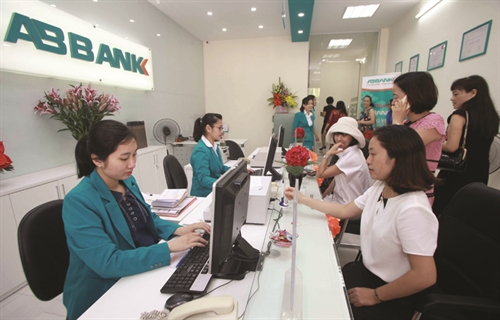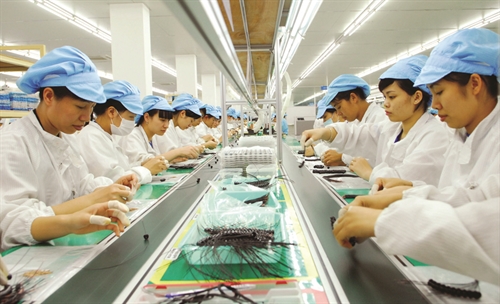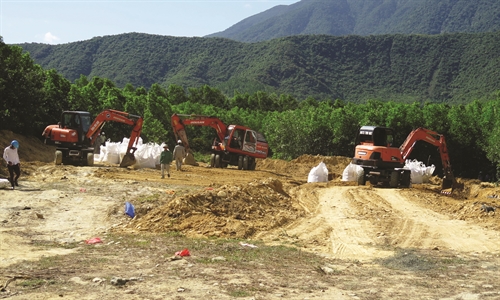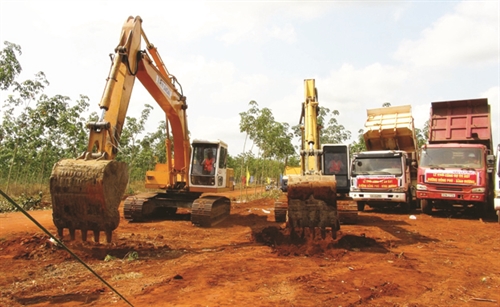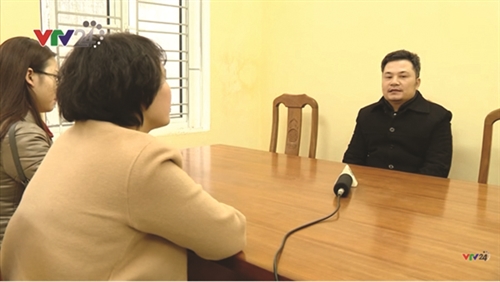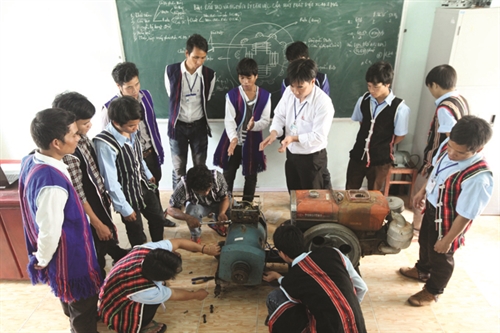The Ministry of Labor, War Invalids and Social Affairs is set to include the proposal to raise the retirement age in the revised Labor Code, which is slated for submission to the National Assembly next year, amid mixed public reaction.
Under the proposal, the retirement age will be raised from 55 to 58 or 60 for women and from 60 to 62 for men but no specific options have been fixed yet as the Ministry is still at the stage of consulting experts and related authorities.
The increase is set under a roadmap in 5-10 years or even 15 years which allows gradual raising of the retirement age with higher increases for women, aiming to reach the same retirement age for both men and women.
 |
| Packaging confectionery products at Hai Ha Kotobuki Co. Ltd. __Photo: Tran Viet/VNA |
Deputy Minister of Labor, War Invalids and Social Affairs Pham Minh Huan stressed the need to raise the retirement age to better use human resources, tackle the country’s aging population and balance the social insurance fund.
Increasing the retirement age was necessary to tap professional qualifications and experience of many employees who had to retire at the age of 55 for women and 60 for men while they could still make good contributions, particularly scientists and specialists, the deputy minister said.
Huan also pointed to the rising life expectancy of Vietnamese, which results in an imbalance between the periods to pay social insurance and to receive pensions, threatening to empty the coffers of the social insurance fund.
According to Vietnam Social Security Deputy Director Tran Dinh Lieu, Vietnamese’s life expectancy has risen from 67 in 1995 to 73 now, meaning the period for a retiree to receive pension has been extended to 19 years from 13 years, given the average insurance payment period of 25 years at present.
Lieu pointed out the rate of social insurance payment now stood at 24%, including 22% for pension and survivorship, but the rate of pension payment was 54% of the total amounts of all years of social insurance payment, which, in addition, annually rose 2% to maximum 75%.
Lieu estimated if the retirement age was not raised, by 2037 the fund’s revenues would equal expenditures and the state budget would have to offset the fund in the years afterward.
According to Nguyen Anh Tuan, director of Vietnam National Productivity Institute, raising the retirement age would help increase working forces, pointing to a slowdown in the recent labor growth which might worsen in the upcoming time. Workers, who still stayed in good health at the age of 60 for men and 55 for women, would have a chance to make more contributions to economic growth, Tuan said.
Dam Huu Dac, vice president of Vietnam Association of the Elderly agreed the retirement age should be raised, especially for women, saying otherwise it would be a waste of the country’s human resources and inequality for women.
Supporting the increase of the retirement age and balance of retirement ages between men and women, Dr. Nguyen Huu Dung, former director of the Institute of Labor Science and Social Affairs, noted that such increase should be considered thoroughly under an appropriate roadmap and considering the supply and demand balance of the labor market as well as characteristics of specific jobs.
Raising the retirement age was necessary given the actual average retirement age of Vietnamese now standing at 52 for women and 57 for men, lower than stipulated by law, but flexible mechanisms should be put in place for employees to opt for early retirement and age limits should be set for specific posts to prevent those clinging to their powers and positions.
Early this month, Minister-Chairman of the Government Office Mai Tien Dung said raising the retirement age was an inevitable global trend while stressing that such increase should take into full account the average life expectancy, socio-economic conditions, employment and incomes of those current at work and those at the threshold of the working age and social security and pension regimes.
Raising the retirement age largely involved benefits and interests of employees with major social impacts and thus should be carefully studied and consulted before it was decided, Dung said.
But critics pointed to hurdles within the social insurance system, particularly poor management and inefficient operation of the social insurance fund, as a reason behind the risks for the fund’s imbalance.
A bulky apparatus with highly-salaried personnel to manage the fund was a reason for its inefficiency, experts said, citing the salaries of employees of the social insurance sector, which were paid from the social insurance fund’s investment profits, were 1.8 times those for civil servants and public employees.
Yet poor management of the fund remained with increasingly complex tricks to withdraw money from the fund, causing heavy losses to the illness, maternity and unemployment funds, the experts pointed out.
Raising the retirement age given lax payroll management and poor management of labor and productivity might worsen the current stagnancy of the state apparatus with many inefficient civil servants and public employees, who might deny young people of chances to get a job, the experts said.
The experts also showed doubts about the efficiency of a system with many elderly people who, with a conservative mind, might become an obstacle for development.
Dang Nhu Loi, former Vice Chairman of the National Assembly Committee on Social Affairs, stressed the need to shift from the actual pension payment system to a system calculating a retiree’s pension depending on the length of their social insurance payment period. Such would help reduce aging population risks and create fairness among insurance payers.
The proposal to raise the retirement age was once put forward in the 2012 Labor Code under which men would retire at 62 and women, at 58, or both men and women would retire at 60 with women having the right to retire from one to five years early, but both options were rejected by the National Assembly.
According to a survey conducted between 2007 and 2012, Vietnam has around 100,000 new retirees each year, the average age of whom is 53.2 years (55.1 years for men and 51.6 years for women).
Among these, 0.1 percent retire at between 35 and 40; nearly 30.5 percent between 41 and 50; over 68 percent between 51 and 60; and 1.4 percent at over 60.- (VLLF)
